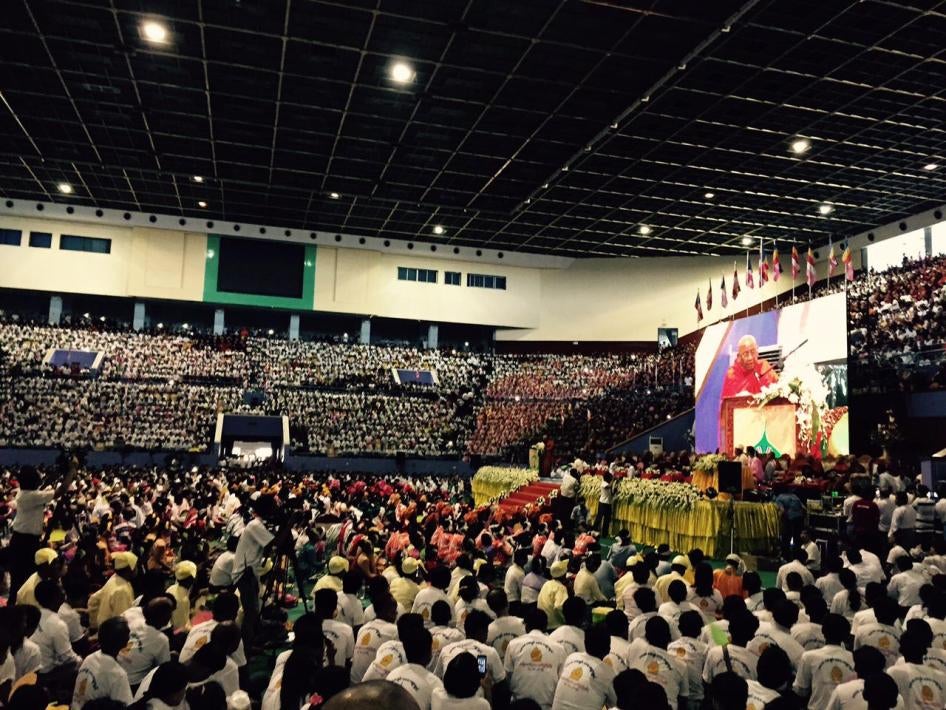In Burma’s rapidly intensifying election campaign, last Sunday’s mass rally at Rangoon’s Thuwannu Stadium heralded the coming-out party of a new political force, the Association for the Protection of Race and Religion, known as Ma Ba Tha. Thousands of Buddhist monks and nuns packed the arena, with thousands more lay supporters outside to hear speeches from some of this country’s most well-known and outspoken abbots – many of whom are also notorious for their racist and anti-Muslim rhetoric and campaigning. Preceding formal speeches was dancing by ethnic Arakanese, Pa-O and Shan dancers, and even Padaung “long-neck” women were in attendance.
The event was the culmination of a nationwide celebration for the national parliament’s passing of four so-called “race and religion protection” laws championed by the Ma Ba Tha. President Thein Sein signed them into law in May and August.
These laws, addressing monogamy, religious conversion, population control, and interfaith marriage, have elicited domestic and international criticism for their anti-Muslim bias and threats to women’s rights. A speech by famous screen actor Nay Aung, who jubilantly heralded the passing of the laws aimed at protecting Buddhist women from Muslim men, was greeted by widespread audience applause and jubilant thumbs-up from the demagogue monk U Wirathu, who has gained notoriety by making threats against both Burmese Muslims and United Nations officials.
The speeches by the movement’s leaders – especially the movement’s founder Insein Ywa Ma Sayadaw – espoused Buddhist nationalism that has championed growing anti-Muslim rhetoric throughout Burma, reflecting a sense of “threat” following communal violence between Muslims and Buddhists in Arakan State in 2012, and throughout central Burma in 2013 in towns like Meiktila. In signing the race and religion laws, the military-installed government and the ruling Union Solidarity and Development Party are pandering to Ma Ba Tha leaders in hopes of gaining the votes of extremists in November’s parliamentary election.
To register their rising concern, nine embassies in Rangoon recently took the unusual step of issuing a public statement expressing concern at “the prospect of religion being used as a tool of division and conflict during the campaign season.” Ma Ba Tha may have arrived on the national stage, but so too has increased concern over their support of laws that threaten fundamental rights.






